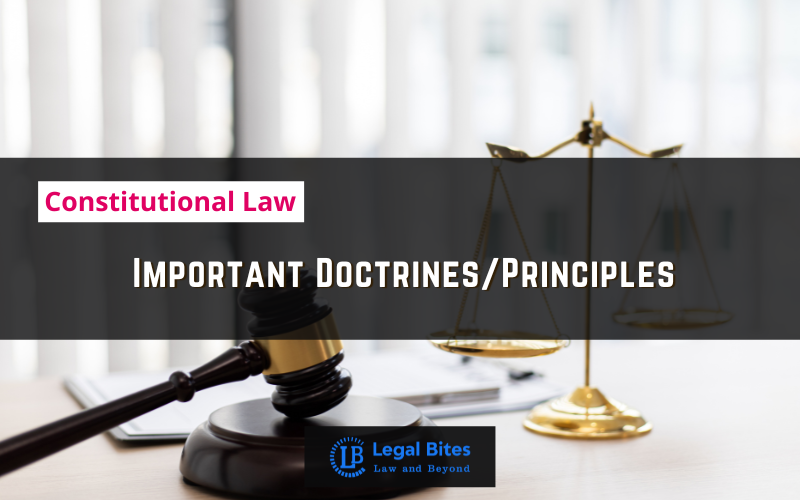What are the grounds for imposing ‘reasonable restrictions on the exercise of the right to freedom of speech and expression by a citizen, under the Constitution of India?
Find the answer to the mains question of Constitutional Law only on Legal Bites.;

Question: What are the grounds for imposing ‘reasonable restrictions on the exercise of the right to freedom of speech and expression by a citizen, under the Constitution of India? X, a resident of Patna, migrates to Madras and establishes a cloth shop there which is commonly known as the ‘North Indian Shop; Some local residents of Madras organize picketing at X’s shop and dissuade customers from purchasing cloth from that shop. Decide, if the above acts of picketing and dissuading...
Question: What are the grounds for imposing ‘reasonable restrictions on the exercise of the right to freedom of speech and expression by a citizen, under the Constitution of India? X, a resident of Patna, migrates to Madras and establishes a cloth shop there which is commonly known as the ‘North Indian Shop; Some local residents of Madras organize picketing at X’s shop and dissuade customers from purchasing cloth from that shop. Decide, if the above acts of picketing and dissuading by Madras residents are protected by Article 19(1)(a) of the Constitution of India which guarantees to every citizen the right to freedom of speech and expression. Give reasons for your answer. [BJS 1979]
Find the answer to the mains question only on Legal Bites. [What are the grounds for imposing ‘reasonable restrictions on the exercise of the right to freedom of speech and expression by a citizen, under the Constitution of India?]
Answer
The Constitution of India guarantees freedom of speech and expression under Article 19(1)(a), but this right is subject to reasonable restrictions under Article 19(2). These restrictions are imposed in the interest of:
- Sovereignty and integrity of the State
- Security of the State
- Friendly relations with foreign States
- Public order
- Decency or morality
- Contempt of court
- Defamation
- Incitement to an offence
The term “reasonable restrictions” implies that the limitations imposed must be fair, just, and proportionate, serving the purpose of protecting public interest without being excessive or arbitrary.
The term public order refers to public peace, safety, and tranquility. It goes beyond ordinary law and order and includes situations where actions may disturb societal harmony or lead to violence.
In Romesh Thapar v. State of Madras (1950), the Supreme Court ruled that public order was not initially a ground under Article 19(2). This led to the insertion of public order as a ground for restriction through the First Constitutional Amendment Act, 1951.
In Ramji Lal Modi v. State of U.P. (1957), the Court clarified that laws regulating activities with a tendency to disturb public order are valid even if the actual disturbance has not yet occurred.
The residents of Madras are Picketing and dissuading customers from purchasing clothes from X's shop (commonly known as the "North Indian Shop").
While these acts may appear to fall under freedom of speech and expression, they go beyond peaceful expression and create a situation of public order disturbance.
Picketing intending to disrupt X’s business may lead to economic harm, discrimination, or even social unrest. This negatively impacts public peace and harmony, thereby falling under reasonable restrictions provided in Article 19(2).
Therefore, the acts of picketing and dissuading by the Madras residents are not protected under Article 19(1)(a). They are liable to be restricted on the grounds of public order.
Important Mains Questions Series for Judiciary, APO & University Exams
- Constitutional Law Mains Questions Series Part-I
- Constitutional Law Mains Questions Series Part-I
- Constitutional Law Mains Questions Series Part-II
- Constitutional Law Mains Questions Series Part-IV
- Constitutional Law Mains Questions Series Part-V
- Constitutional Law Mains Questions Series Part-VI
- Constitutional Law Mains Questions Series Part-VII
- Constitutional Law Mains Questions Series Part-VIII
- Constitutional Law Mains Questions Series Part-IX
- Constitutional Law Mains Questions Series Part-X



